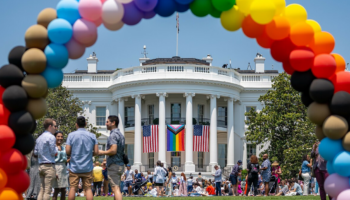A monosexual is a person with a sexual preference for a single sex.
Hungarian journalist Karl Maria Kertbeny coined the term in the late 1860s. By his definition, a monosexual is a person that masturbates or who has a sexual interest only in themselves. However, that use of the term is now obsolete.
Recently, the term monosexual is understood as an alternative to bisexual, a term describing a person with a sexual interest in two sexes: male and female. The term is typically used in the academic world.
More About Monosexual
Under the modern definition of the term, a monosexual person can be either heterosexual or homosexual. Bisexual people, as well as people who identify with newer sexuality descriptors like pansexual or queer, are considered non-monosexual.
Historically, monosexuality was considered “normal,” with the majority of monosexuals identifying as heterosexual. However, more contemporary studies reveal monosexual identities are becoming less common, especially among younger people. A 2016 study from the J. Walter Thompson Innovation Group found less than half of teenagers identify as entirely straight. More than a third of the teens surveyed identified as non-monosexual. A 2015 study from YouGov found half of 18 to 24 year olds identified as completely straight. Mark Simpson, writing for Out, commented that this research shows “the younger generation is abandoning monosexuality as a belief system.”
Some people reject the term monosexual, because they feel that heterosexual people should not be placed in the same category as homosexual people, who often face prejudice due to their sexuality. This feeling largely comes from discussions about monosexual privilege. People who believe in monosexual privilege say that people with a single sexual preference do not face the backlash that non-monosexual people do. It’s a common misconception that non-monosexuality is simply a phase or a stepping stone on the journey to monosexuality. People who believe in monosexual privilege acknowledge that the path isn’t always easy for homosexual people, but argue that their own struggles as non-monosexual people are unique.

















